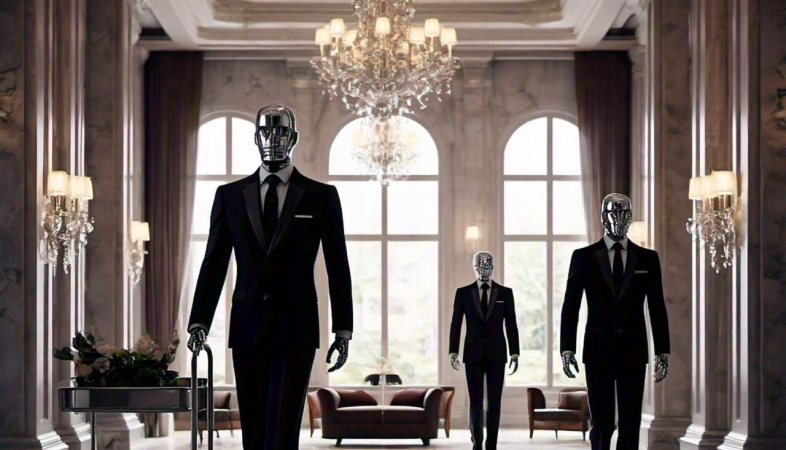The Future of Front Desks: Will AI Replace Receptionists?
The future may be tech-driven, but the human touch will remain an integral part of the hotel experience.
The front desk is a key element of any hotel experience,
providing guests with a personal and welcoming introduction to their stay.
However, as technology continues to advance, a growing question arises: will
artificial intelligence (AI) eventually replace human receptionists? While this
idea might seem futuristic, the rapid development of AI-powered solutions and
automation has already begun transforming the hospitality industry. From
check-in kiosks to AI chatbots, many hotels are experimenting with new technologies
that streamline operations and enhance customer experiences. But does this mean
the end of the traditional front desk? Or will AI simply complement the role of
human receptionists in a way that benefits both guests and staff?
The potential for AI to replace receptionists lies in its ability to automate routine tasks, such as check-in, check-out, room assignments, and answering common guest inquiries. AI systems can process vast amounts of data quickly and efficiently, reducing wait times and providing instant responses to guests. For instance, AI-powered check-in kiosks and mobile apps allow guests to bypass the traditional front desk and complete their registration without human assistance. This not only speeds up the process but also frees up hotel staff to focus on more complex or personalized requests. Furthermore, AI chatbots integrated into hotel websites or mobile apps can handle guest questions around the clock, providing information on amenities, local attractions, or even making reservations.
One of the biggest advantages of AI in the hotel industry is its ability to offer seamless, contactless experiences. The COVID-19 pandemic accelerated the demand for touchless solutions, and many hotels are now investing in technologies that minimize human interaction while maintaining high levels of service. With AI-powered tools, guests can check in and access their rooms without coming into contact with a receptionist. This not only enhances safety but also caters to a growing preference for convenience and efficiency. For tech-savvy travelers, especially millennials and Gen Z, these automated systems align with their expectations of a modern, fast-paced, and frictionless experience.
However, while AI can handle a variety of tasks, it is unlikely to fully replace the human touch that is essential to the hospitality industry. Receptionists do much more than check in guests—they provide personalized service, solve problems, and create a welcoming atmosphere that AI cannot replicate. For example, a friendly greeting from a receptionist, offering recommendations for local dining, or making a guest feel truly valued, are elements of the service that AI struggles to mimic. Moreover, AI systems are only as effective as the data they are programmed with and can struggle with complex or unusual requests. In situations where guests encounter issues or need extra assistance, human intervention remains irreplaceable. The empathy and emotional intelligence of a human receptionist are qualities that AI simply cannot replicate at this stage.
Rather than replacing receptionists, the future of the front desk may involve a hybrid model, where AI works alongside humans to improve efficiency while allowing staff to focus on more meaningful, guest-centric tasks. For example, a receptionist could use AI-powered tools to quickly retrieve guest preferences or identify any special requests, enabling them to offer a more tailored experience. AI can also help by providing real-time data on room availability, guest satisfaction, and operational efficiencies, which can enhance decision-making and improve overall service quality. By automating routine tasks, hotels can ensure that their human staff is better equipped to handle the more nuanced aspects of hospitality, such as addressing guest concerns and creating memorable experiences.
As AI technology continues to evolve, it is likely that the role of the front desk receptionist will change, but not disappear. Instead of replacing human staff, AI will augment their capabilities, allowing for more efficient operations and enhanced service quality. The future of the front desk is one where technology and human expertise work together to create a seamless, personalized, and efficient experience for every guest. Whether it’s an AI-powered check-in kiosk, a chatbot answering questions, or a human receptionist offering personalized service, the combination of both will define the next era of hospitality. The future may be tech-driven, but the human touch will remain an integral part of the hotel experience.
.png)





























